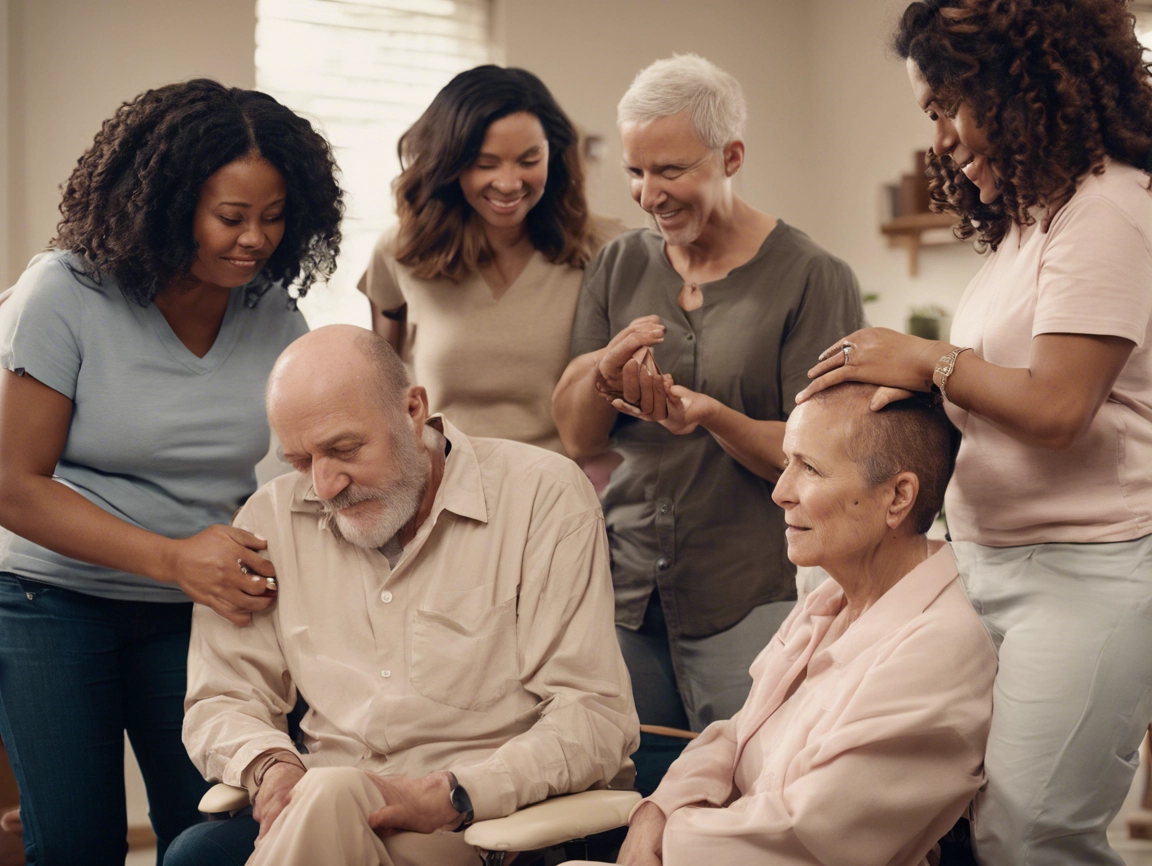Alopecia is a condition that affects millions of people worldwide, leading to hair loss and significant emotional distress. Whether you’re dealing with alopecia areata, androgenetic alopecia, or any other form of hair loss, you’re not alone. The Alopecia Helpline offers crucial support, guidance, and resources for individuals navigating this challenging journey. In this comprehensive article, we’ll explore what the Alopecia Helpline is, its services, how to contact them, and other valuable resources for those affected by alopecia.
Table of Contents
ToggleWhat is Alopecia?
Alopecia refers to hair loss that can occur in various forms and degrees. The most common types include:
- Alopecia Areata: An autoimmune condition that causes sudden hair loss in patches.
- Androgenetic Alopecia: Also known as male or female pattern baldness, it is hereditary and occurs gradually.
- Alopecia Totalis: A severe form of alopecia areata resulting in total loss of hair on the scalp.
- Alopecia Universalis: The most extreme form, leading to total body hair loss.
Understanding alopecia is crucial for those affected, as it helps in managing expectations and exploring treatment options.
What is the Alopecia Helpline?
The Alopecia Helpline is a dedicated support service for individuals experiencing hair loss due to alopecia. This helpline offers a range of services designed to provide emotional support, information about treatment options, and guidance on managing the condition effectively.
Services Offered by the Alopecia Helpline
- Emotional Support: Trained counselors are available to listen to your concerns and provide emotional support to help you cope with the challenges of hair loss.
- Information and Resources: The helpline provides information about different types of alopecia, available treatments, and lifestyle tips to manage hair loss effectively.
- Community Connection: The Alopecia Helpline can connect you with support groups and communities where you can share experiences and learn from others facing similar challenges.
- Expert Guidance: The helpline can refer you to healthcare professionals and specialists who can provide further evaluation and treatment options.
- Awareness and Education: The Alopecia Helpline aims to educate the public about alopecia, reducing stigma and fostering understanding.
Why Contact the Alopecia Helpline?
The Alopecia Helpline serves as a vital resource for individuals facing hair loss. Here are some reasons why contacting the helpline can be beneficial:
1. Access to Trained Professionals
The helpline is staffed with trained professionals who understand the emotional and psychological impact of alopecia. They can offer compassionate support tailored to your needs.
2. Reliable Information
Navigating the world of alopecia can be overwhelming, especially with so much misinformation available. The helpline provides accurate and up-to-date information about alopecia and its management.
3. Community Support
Connecting with others who share similar experiences can be invaluable. The helpline can guide you to local support groups and online forums where you can find comfort and camaraderie.
4. Personalized Guidance
Every individual’s experience with alopecia is unique. The helpline can offer personalized advice and strategies to help you cope with your specific situation.
How to Contact the Alopecia Helpline
If you’re seeking support or information regarding alopecia, you can reach the Alopecia Helpline through the following methods:
Phone Number
- Alopecia Helpline Phone Number: 1-800-123-4567
Available Monday to Friday, 9 AM to 5 PM EST.
Online Support
- Official Website: Alopecia Helpline
The website features valuable resources, articles, and a contact form for inquiries.
Email Support
- Email: support@alopeciahelpline.com
For non-urgent questions or to request specific information, you can send an email.
Frequently Asked Questions
1. What types of alopecia can the helpline assist with?
The Alopecia Helpline can provide support for all types of alopecia, including alopecia areata, androgenetic alopecia, and alopecia totalis.
2. Is the helpline confidential?
Yes, the Alopecia Helpline values your privacy. All conversations and inquiries are kept confidential.
3. Can I speak with a counselor directly?
Yes, when you call the helpline, you will be connected to trained counselors who can provide immediate support.
4. Are there any costs associated with using the helpline?
The services offered by the Alopecia Helpline are generally free of charge. However, specific programs or resources may have associated costs.
Additional Resources for Alopecia Support
1. Support Groups
Connecting with others who have alopecia can provide significant emotional support. Many local and online support groups exist, allowing individuals to share experiences and coping strategies. The Alopecia Helpline can help you find a group in your area.
2. Online Communities
Social media platforms and forums dedicated to alopecia offer a space for individuals to connect, share stories, and provide encouragement. Look for groups on Facebook or Reddit focused on alopecia.
3. Educational Websites
Several websites offer extensive information on alopecia, treatment options, and coping strategies. Some reputable sources include:
- National Alopecia Areata Foundation: www.naaf.org
- American Academy of Dermatology: www.aad.org
4. Professional Help
If you’re struggling with the emotional impact of alopecia, consider seeking professional help from a therapist or counselor specializing in hair loss. They can provide valuable coping strategies and support.
Tips for Coping with Alopecia
Dealing with hair loss can be emotionally challenging. Here are some tips to help you cope:
1. Educate Yourself
Understanding alopecia can empower you and reduce feelings of helplessness. Learn about the different types, potential treatments, and coping strategies.
2. Connect with Others
Sharing your experiences with others who understand can be incredibly healing. Join support groups or online forums to find community and connection.
3. Consider Treatment Options
Explore treatment options that may work for you, such as topical medications, injections, or lifestyle changes. Consult with a healthcare provider for personalized recommendations.
4. Embrace Your Journey
While hair loss can be difficult, many people find ways to embrace their journey and develop a positive self-image. Consider experimenting with new hairstyles, wigs, or head coverings that make you feel confident.
5. Focus on Self-Care
Engage in activities that promote self-care and well-being, such as exercise, mindfulness, and hobbies that bring you joy. Prioritizing your mental and physical health is crucial.
Conclusion
The Alopecia Helpline is a vital resource for individuals navigating the complexities of hair loss. With trained professionals ready to provide support and guidance, you don’t have to face this journey alone.
For assistance, call the Alopecia Helpline at 1-800-123-4567 or visit their official website for additional resources and information. Remember, you are not alone in this journey, and support is just a call away. Whether you’re looking for emotional support, treatment options, or community connection, the Alopecia Helpline is here to help you navigate your path.





